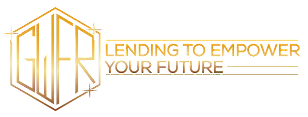Understanding the Homebuying Process with GWFR Lending
Embarking on your first home purchase is both exciting and daunting, especially when navigating a landscape filled with unfamiliar terms and processes. At GWFR Lending, we believe that knowledge is the cornerstone of confident decision-making. Our expert team is committed to demystifying the homebuying journey, ensuring you are well-prepared each step of the way.
The process begins with a clear understanding of your financial landscape. GWFR Lending offers comprehensive guidance in evaluating your credit score, understanding your borrowing capacity, and setting a realistic budget. This foundational step ensures your home search is both focused and feasible, eliminating unnecessary stress from the outset.
Step-by-Step Guidance
- Pre-qualification: We help you assess your financial readiness, providing a transparent picture of loan options specifically tailored to your needs.
- Loan Application: Our streamlined process simplifies paperwork and documentation, making it easy to submit your application and track its progress.
- Approval and House Hunting: With pre-approval in hand, you can confidently explore properties within your price range, knowing exactly what you can afford.
- Closing: Our experts support you through the final steps, ensuring a smooth transition from offer acceptance to the closing table.
By partnering with GWFR Lending, you gain a trusted advisor dedicated to your success. This comprehensive approach transforms the homebuying process from an overwhelming task into an empowering experience, seamlessly leading you to the next stage of your journey: preparing for your first home purchase with confidence.
Assessing Your Financial Readiness for a Home Purchase
Before you embark on the journey to homeownership, it’s essential to take a thorough, honest look at your financial situation. GWFR Lending’s expert checklist begins with this crucial step, ensuring buyers are equipped with a realistic picture of their readiness. Assessing your financial readiness not only sets you up for success but also helps you avoid costly surprises down the road.
Understanding Your Income and Expenses
Start by evaluating your monthly income from all sources and compiling a detailed list of regular expenses. This includes rent, utilities, groceries, transportation, insurance, and discretionary spending. By creating a clear budget, you can determine how much you can comfortably allocate towards a mortgage payment each month without straining your finances.
Reviewing Your Credit Health
Your credit score plays a pivotal role in the mortgage process. Obtain your credit report and review it for accuracy, noting any areas that need improvement. GWFR Lending recommends addressing outstanding debts, making timely payments, and avoiding new credit inquiries before you apply for a home loan. A strong credit profile can unlock better interest rates and loan options.
Evaluating Savings for Upfront Costs
Purchasing a home requires more than just a down payment. Factor in closing costs, moving expenses, and the creation of an emergency fund to handle any unanticipated repairs or financial shifts. GWFR Lending’s checklist emphasizes building robust savings to cover these costs, supporting a smoother transition into homeownership.
By taking these preparatory steps, you’ll lay a solid foundation for the next phase of your home-buying journey, ensuring you’re financially equipped to move forward with confidence.
Building a Strong Credit Profile as a First-Time Homebuyer
Embarking on the journey to homeownership begins with the foundation of a robust credit profile. For first-time homebuyers, understanding and improving your credit score is essential, as it directly impacts your eligibility for favorable mortgage rates and loan approvals. GWFR Lending emphasizes the importance of this step in their expert checklist, guiding you through actionable strategies to position yourself as a reliable borrower.
Understand Your Credit Report
Start by obtaining a copy of your credit report from major bureaus. Review the details meticulously, ensuring all information is accurate and up to date. Dispute any inaccuracies promptly, as even minor errors can influence your creditworthiness and delay your home purchase process.
Strategically Improve Your Credit Score
- Pay Down Outstanding Debt: Focus on reducing high credit card balances and making timely payments. Consistent, on-time payments demonstrate financial responsibility to lenders.
- Avoid New Credit Applications: Refrain from opening new credit accounts or taking on additional debt during the months leading up to your home loan application.
- Maintain Low Credit Utilization: Aim to use less than 30% of your available credit limit, as lower utilization rates are viewed favorably by lenders.
By proactively managing your credit, you not only enhance your chances of mortgage approval but also unlock better interest rates, saving you money in the long run. As you progress through GWFR Lending’s expert checklist, a strong credit profile will serve as a cornerstone for your successful first home purchase.
Budgeting for Your First Home and Related Costs
Embarking on the journey to homeownership begins with a clear understanding of your finances. Crafting a realistic budget is essential for anyone considering their first home purchase, as it sets the foundation for every step that follows. At GWFR Lending, we emphasize the importance of looking beyond just the listing price—it’s about preparing for both the obvious and subtle costs associated with buying a home.
Assessing Your Financial Readiness
Start by evaluating your current income, savings, and existing debts. This will help you determine how much you can comfortably allocate each month toward your mortgage without stretching your finances too thin. Use online mortgage calculators to estimate monthly payments based on different price points and interest rates, ensuring your expectations align with reality.
Understanding Upfront and Ongoing Expenses
- Down Payment: Typically ranges from 3% to 20% of the home’s price, depending on loan programs and your credit profile.
- Closing Costs: These one-time fees—covering appraisal, inspection, title insurance, and lender fees—often total 2% to 5% of the purchase price.
- Moving and Immediate Repairs: Factor in the cost of moving, new furnishings, and any initial repairs or updates your new home may require.
- Property Taxes and Homeowners Insurance: These recurring expenses can vary significantly by location and property value, so research local rates in advance.
By thoughtfully preparing for both the expected and hidden expenses, you’ll be empowered to shop confidently, knowing that your budget encompasses all aspects of homeownership. This prudent approach ensures a smoother transition into your new home and sets you up for long-term financial stability.
Gathering Essential Documents for Mortgage Applications
Embarking on your first home purchase is an exciting journey, but the process can quickly become overwhelming without the proper preparation. One of the foundational steps is gathering all the essential documents required for your mortgage application. Doing so not only expedites the approval process but also demonstrates to lenders that you are a serious and organized buyer.
Personal Identification and Proof of Residency
Start by collecting government-issued photo identification, such as a driver’s license or passport, to verify your identity. Lenders may also request proof of residency, which can include recent utility bills or a current lease agreement. These documents establish your legitimacy and ensure that the application process moves forward smoothly.
Income Verification and Employment History
Your financial stability is a key consideration for mortgage lenders. Prepare recent pay stubs, W-2 forms, and tax returns from the past two years. If you are self-employed, gather profit and loss statements along with 1099 forms. Solid documentation of your income and employment history assures the lender of your ability to meet future mortgage payments.
Financial Statements and Debt Documentation
To present a comprehensive picture of your financial health, assemble recent bank statements, retirement account summaries, and documentation of any outstanding debts such as credit card balances or student loans. This information helps lenders assess your debt-to-income ratio—a crucial factor in the mortgage approval process.
By proactively gathering these critical documents, you’ll be well-prepared to navigate the mortgage application process with confidence and efficiency, paving the way for a successful first home purchase. Next, let’s explore how understanding your creditworthiness can further strengthen your application.

